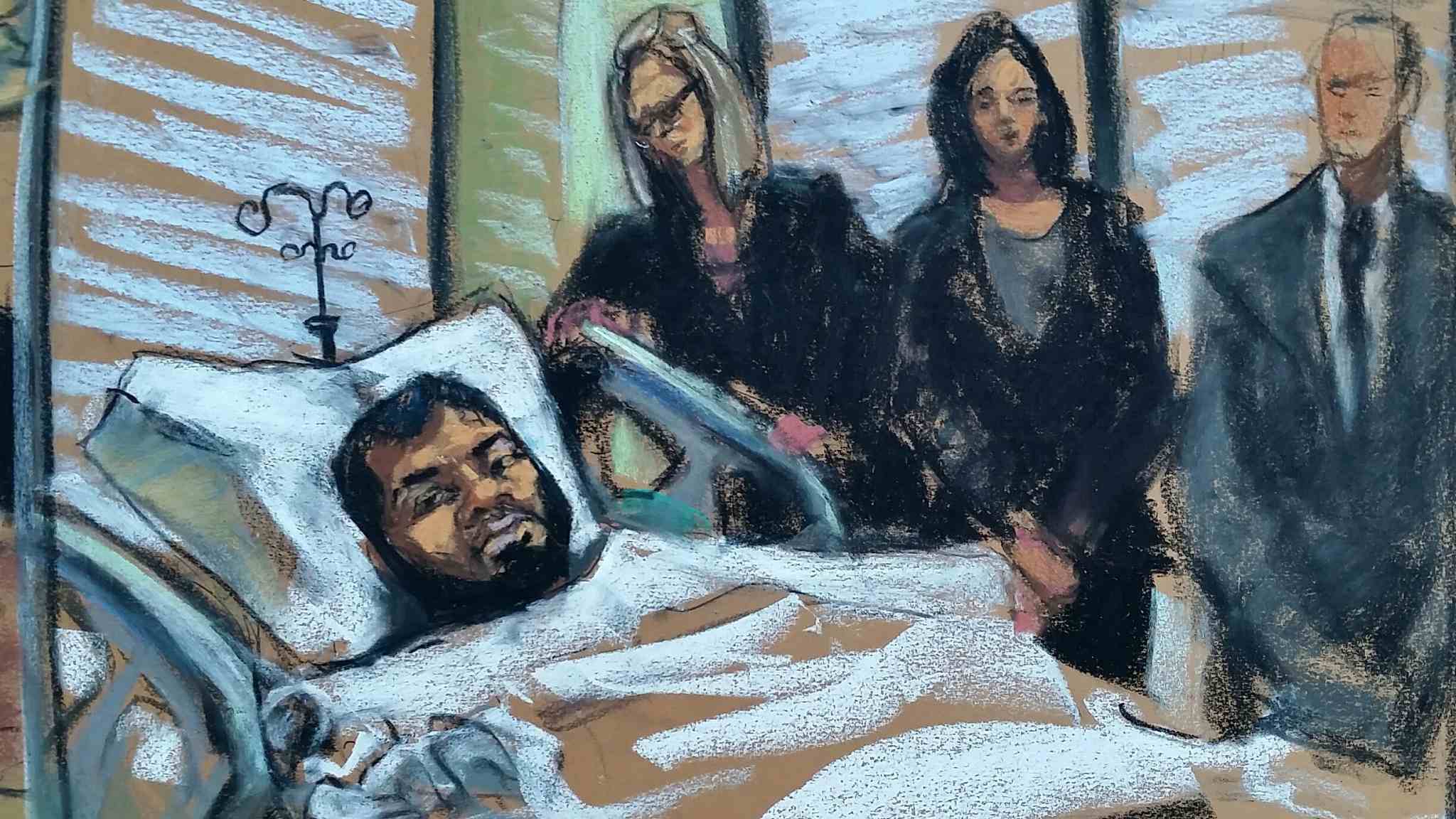A Bangladeshi immigrant was convicted Tuesday of setting off a pipe bomb in New York City's busiest subway station, disputing in court that he was supporting the Islamic State of Iraq and the Levant (ISIL) group and saying he was instead motivated by anger at President Donald Trump.
The unusual outburst by Akayed Ullah, who was convicted in Manhattan federal court of supporting the terrorist group, capped a trial in which the defense maintained he intended to kill only himself last December 11. Nobody died, and most of the injuries were not serious.
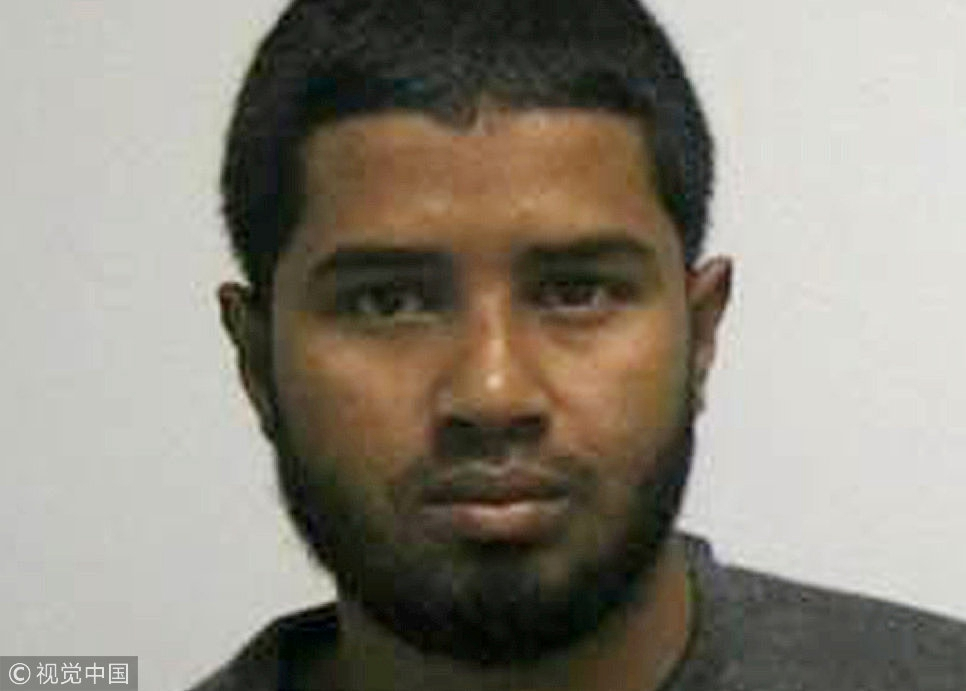
Akayed Ullah, a Bangladeshi man who attempted to detonate a homemade bomb strapped to his body at a New York commuter hub during morning rush hour, is seen in this handout photo received December 11, 2017. /VCG Photo
Akayed Ullah, a Bangladeshi man who attempted to detonate a homemade bomb strapped to his body at a New York commuter hub during morning rush hour, is seen in this handout photo received December 11, 2017. /VCG Photo
Prosecutors said Ullah sought to maim or kill commuters in response to calls for “lone wolf” terrorist attacks by the terror group. Just after jurors walked out, Ullah announced he had something to say and repeatedly insisted he did not act on the ISIL's behalf.
“I was angry with Donald Trump because he says he will bomb the Middle East and then he will protect his nation. So I said: ‘Donald Trump, you cannot do like this.' Nobody likes bombing, your honor.”
Judge Richard J. Sullivan told him: “Right now is not the time for a statement.”
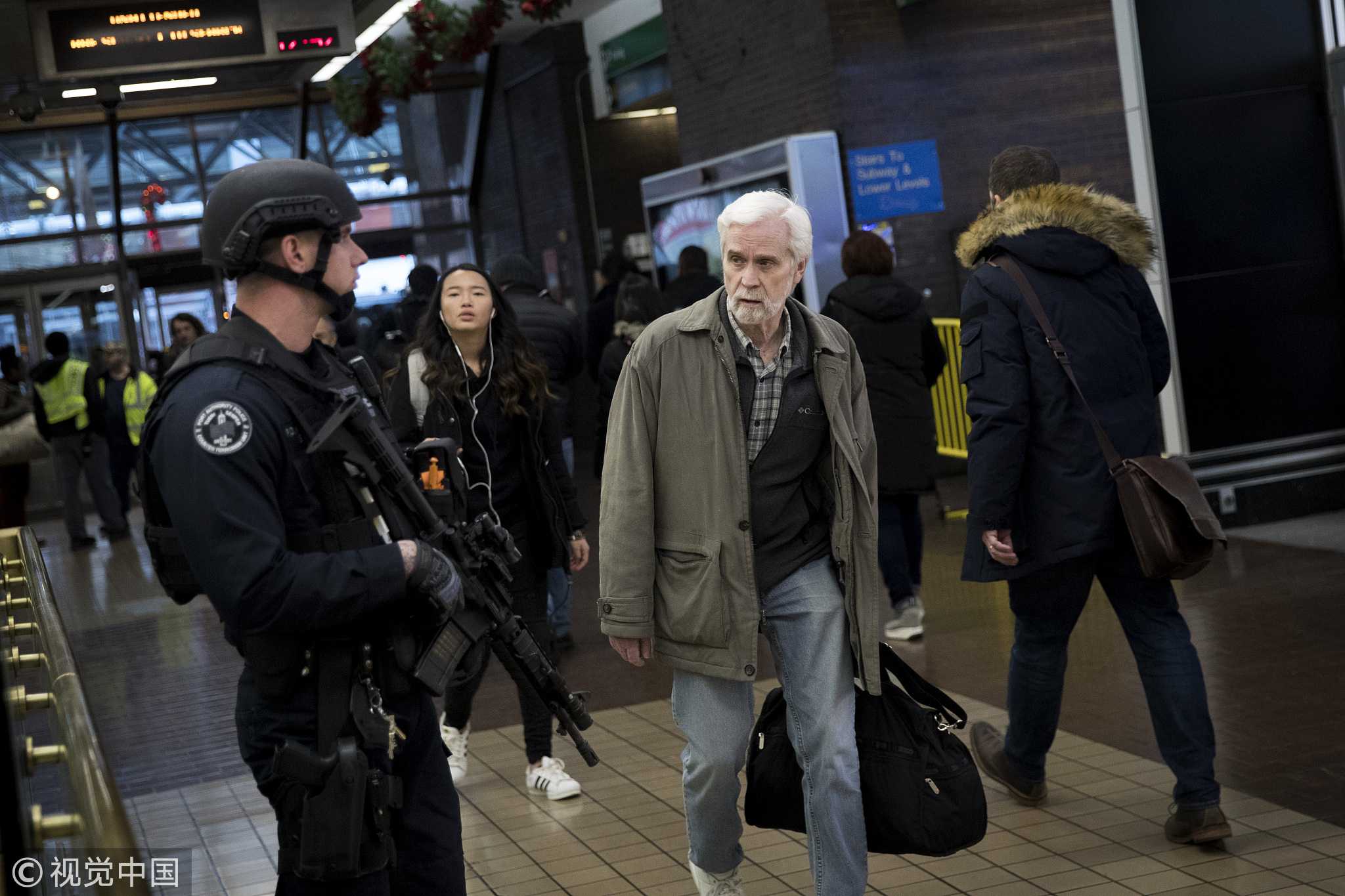
Members of the New York City Police Department stand guard as people walk through the New York Port Authority Bus Terminal after it reopened following an explosion, December 11, 2017, in New York City. /VCG Photo
Members of the New York City Police Department stand guard as people walk through the New York Port Authority Bus Terminal after it reopened following an explosion, December 11, 2017, in New York City. /VCG Photo
“Your honor, you heard what the government is trying to do. They are trying to put me in the group, which I don't support, your honor,” Ullah told Sullivan.
“Mr. Ullah, now is not the time for this,” said the judge, who set sentencing for April 5. Ullah faces a mandatory 30-year prison sentence and could be sent to prison for life.
Hearing about Ullah's new claims, juror Linda Artis told reporters Ullah could have swayed some jurors by taking the witness stand.
“He did it. The big question was why,” she said. “And a lot of it couldn't be answered because he didn't testify. That was the big hang-up for me.”
Artis, 38, of Manhattan, said she worried some vague laws might allow a lot of people to be “labeled a terrorist if they are just a random whack job.”
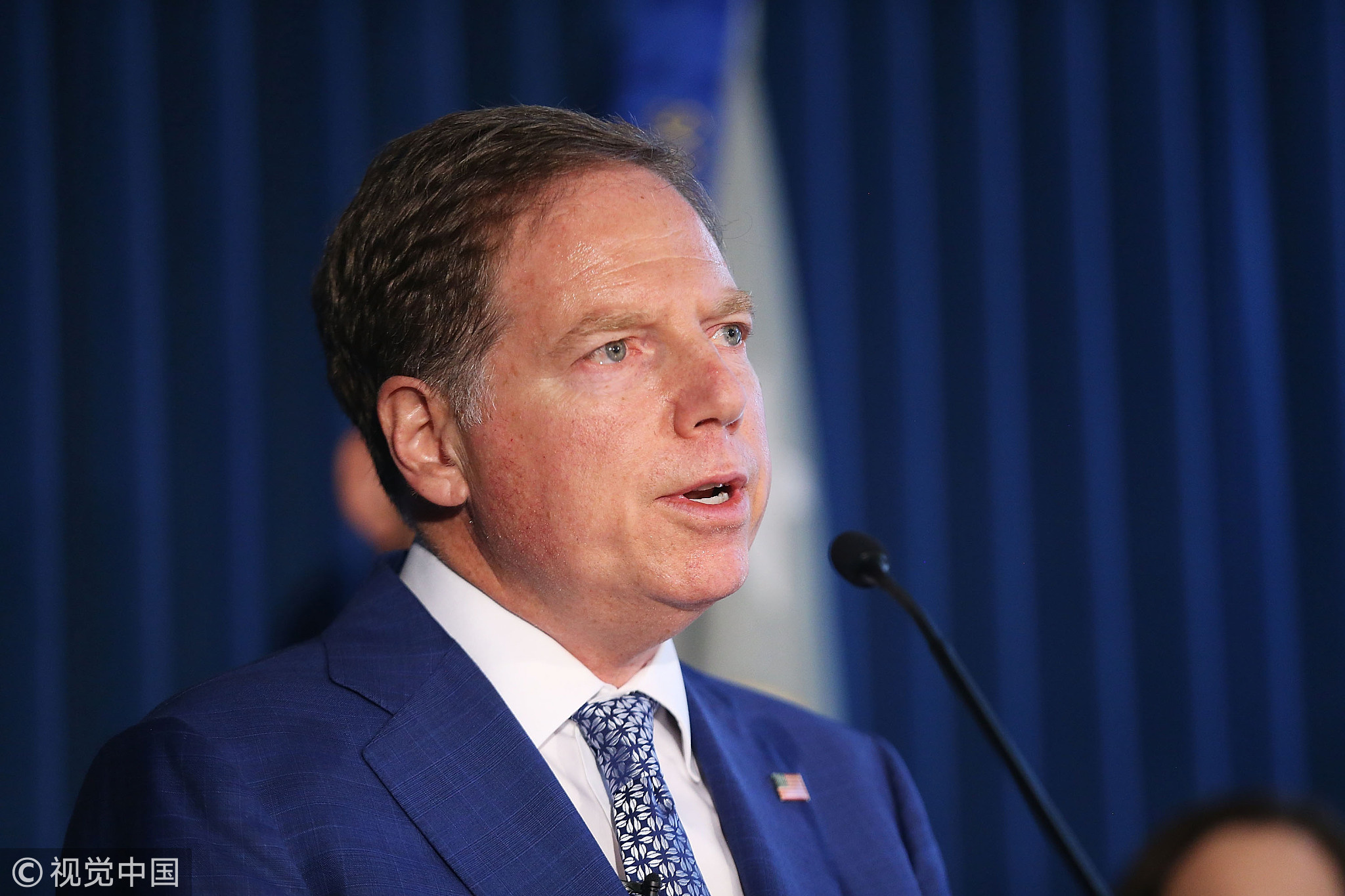
Geoffrey Berman, the US Attorney for the Southern District of New York, explains to the media the insider trading case against Rep. Chris Collins (R-NY), August 8, 2018, in New York City. /VCG Photo
Geoffrey Berman, the US Attorney for the Southern District of New York, explains to the media the insider trading case against Rep. Chris Collins (R-NY), August 8, 2018, in New York City. /VCG Photo
In a statement, US Attorney Geoffrey S. Berman said the Election Day verdict on Ullah's attempt to make a political statement with deadly violence “fittingly underscores the core principles of American democracy and spirit: Americans engage in the political process through votes, not violence.”
At trial, prosecutors said Ullah would not have worn a bomb had he wanted to kill only himself. They cited Ullah's social media postings and said he told an investigator: “I did it for the ISIL.”
The weeklong trial featured surveillance video of Ullah the morning when his pipe bomb barely exploded, seriously burning him in a corridor beneath Times Square and the Port Authority bus terminal, where most subway lines converge.
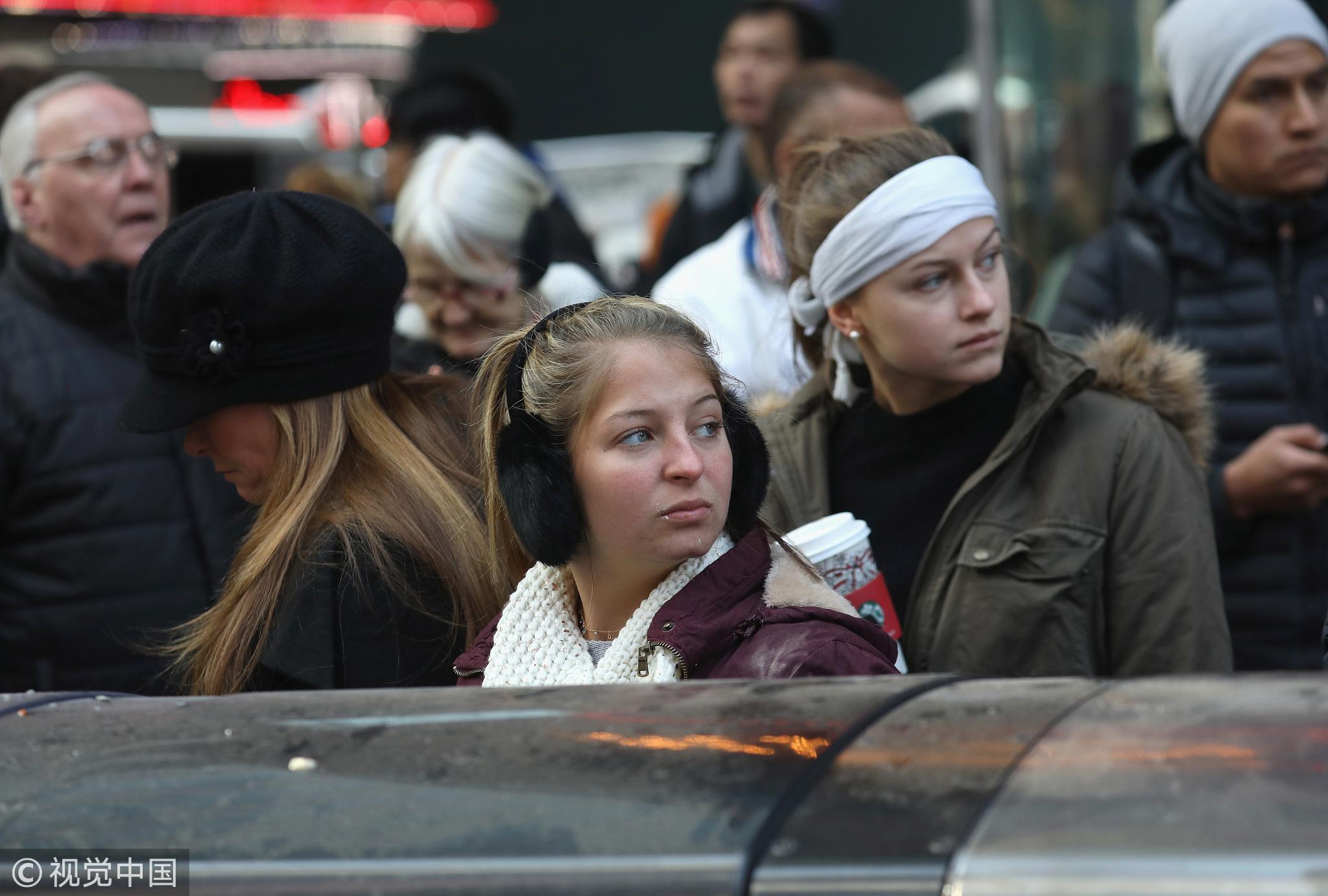
Bystanders look towards the site of a pipe bomb explosion in Midtown Manhattan, December 11, 2017, in New York City. /VCG Photo
Bystanders look towards the site of a pipe bomb explosion in Midtown Manhattan, December 11, 2017, in New York City. /VCG Photo
Ullah, 28, of Brooklyn, was confronted with his post-arrest statements and his social media comments, such as when he taunted Trump on Facebook before the attack.
Within hours of Ullah's blast, Trump was assailing the immigration system that had allowed Ullah, and multitudes of law-abiding Bangladeshis, to enter the US.
Ullah got an entry visa in 2011 because he had an uncle who was already a US citizen. Trump said allowing foreigners to follow relatives to the US was “incompatible with national security.”
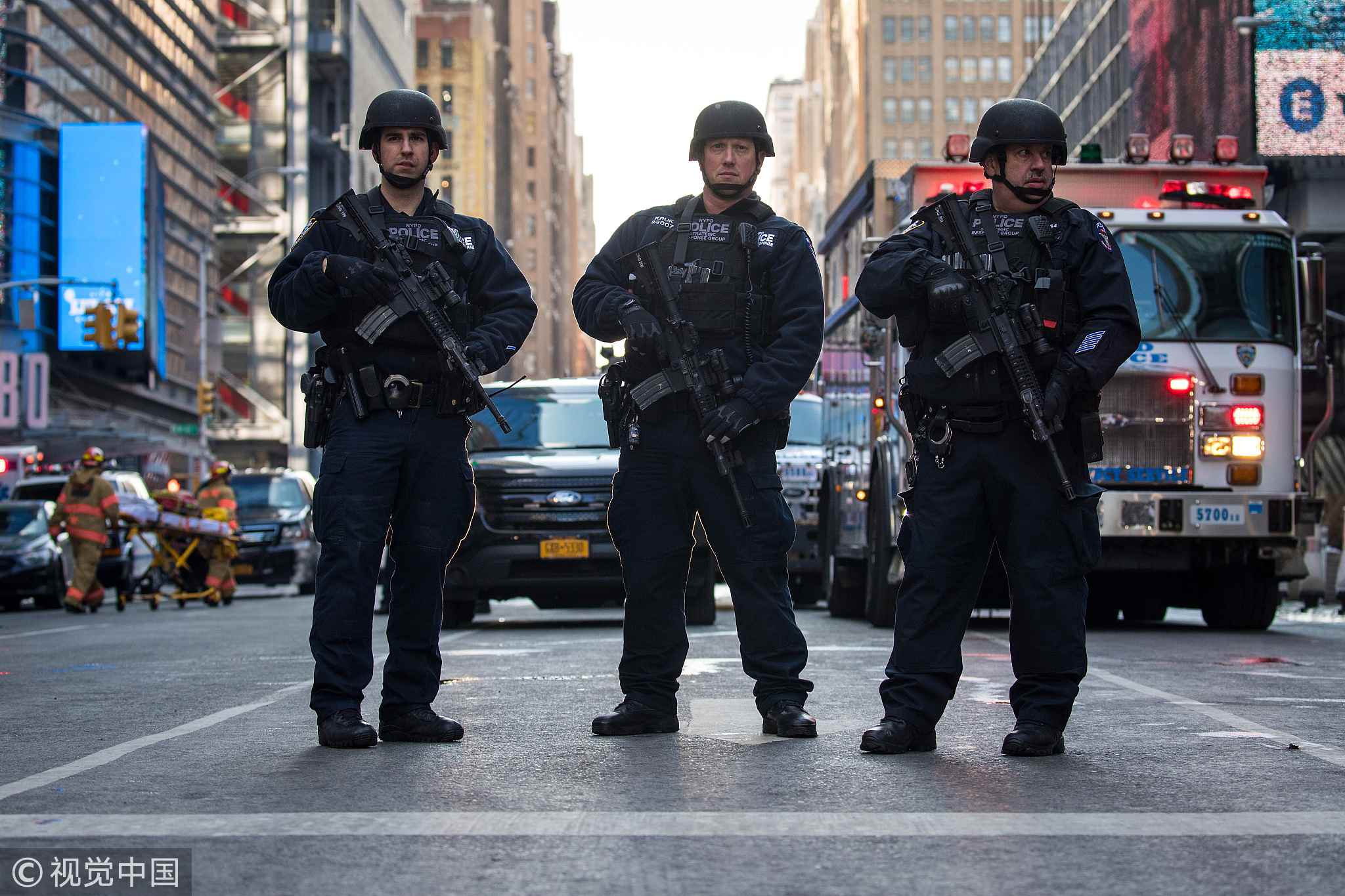
New York City Police Department officers stand guard near the New York Port Authority Bus Terminal, December 11, 2017, in New York City. /VCG Photo
New York City Police Department officers stand guard near the New York Port Authority Bus Terminal, December 11, 2017, in New York City. /VCG Photo
Authorities said Ullah's radicalization began in 2014 when he started viewing materials online, including a video instructing ISIL supporters to carry out attacks in their homelands.
In closing arguments Monday, Assistant US Attorney George Turner said Ullah told investigators after his arrest that he wanted to avenge US aggression toward the ISIL group and had chosen a busy weekday morning to attack so he could terrorize as many people as possible.
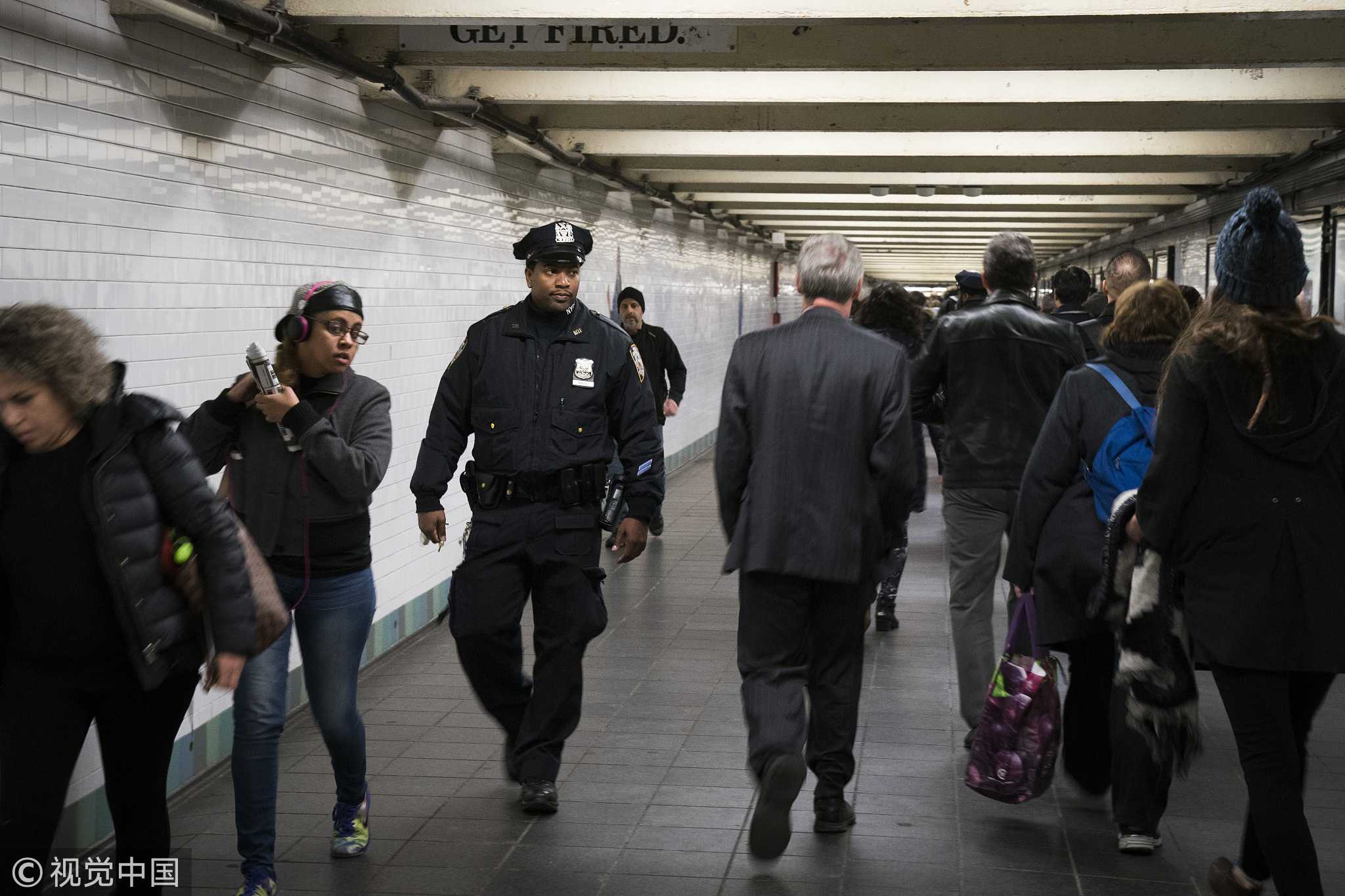
A police officer patrols as commuters make their way through the passageway connecting the Times Square subway station to the Port Authority subway station and bus terminal, near the site of attempted terror attack, December 12, 2017, in New York City. /VCG Photo
A police officer patrols as commuters make their way through the passageway connecting the Times Square subway station to the Port Authority subway station and bus terminal, near the site of attempted terror attack, December 12, 2017, in New York City. /VCG Photo
Ullah's attorney, Amy Gallicchio, told jurors Ullah was not a terrorist and wanted to die alone.
Assistant US Attorney Shawn Crowley disputed that.
“It was about martyrdom, not suicide,” she said.
Source(s): AP

